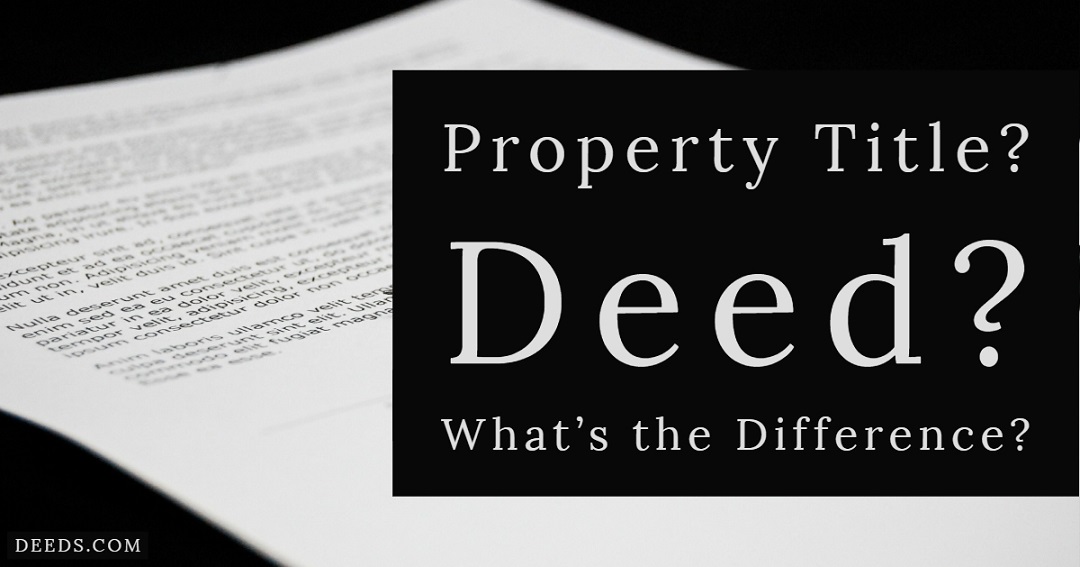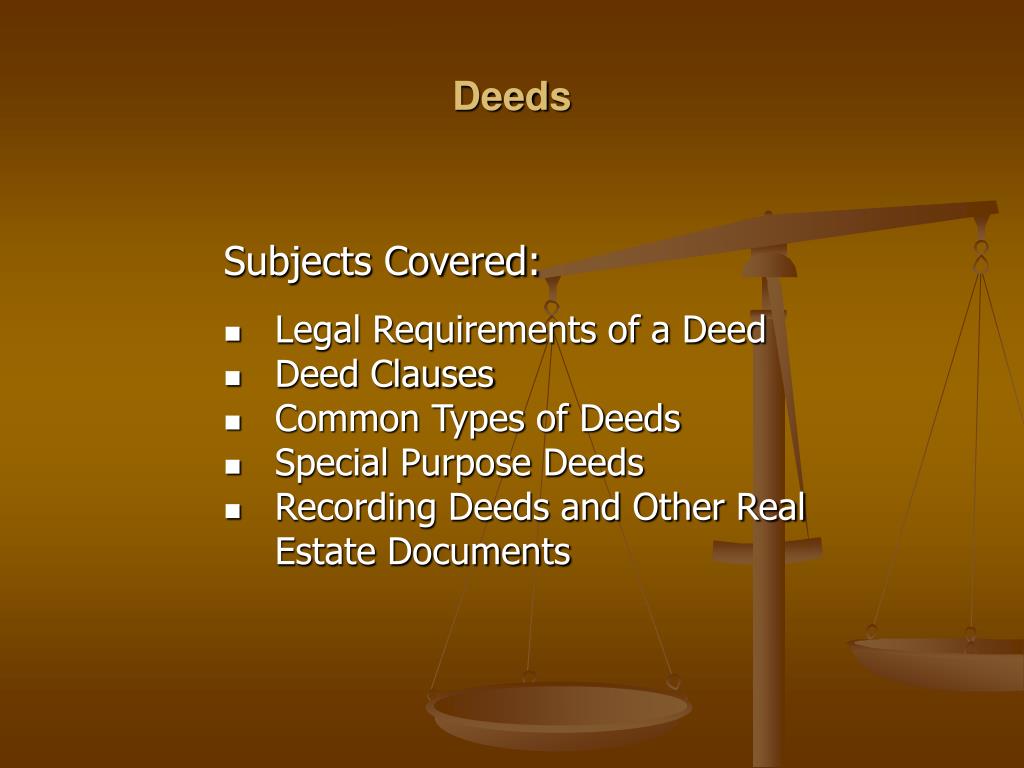Table Of Content
- Protect what matters most with an estate plan
- Grantor(s) Sign in Front of a Notary
- Make sure house deeds are a part of your estate plan
- Update your estate plan to include the deed to your house
- How Does A Deed To A House Differ From A Title?
- Title fraud thieves could steal your home while you're still living in it. How to protect yourself

This article will review what a house deed is and how it affects your property rights as a homeowner. Although both describe homeownership, the word “title” is conceptual and describes a person’s right and ownership to a property. You can get a deed to your property by contacting your local county recorder’s office. Depending on where you live, you might even be able to get a copy online. Common uses for Grant Deeds are real property sales that do not use mortgage financing, and when transferring property as a gift or to a trust or business.
Protect what matters most with an estate plan
Betty Ann Martin conveyed property on Locust Grove Road to Timothy D. Nolt and Ashley N. Nolt for $425,000. Jeffrey N. Morgan conveyed property on Sun Hill Road to Leonard P Jr. John D. Byler conveyed property on Lincoln Highway to BKS Home Realty LLC for $1. David K. Brown conveyed property on Aspen Street to Christian S. Blank and Kathryn S. Blank for $425,000.
Grantor(s) Sign in Front of a Notary

We’ll discuss the different methods available and highlight important keywords such as “search for property owner” and “how to find property owner”. You may also hear the term “property title” and wonder how it’s different from your house deed. The term title is conceptual in nature and describes the legal ownership or claim a party might have to a piece of property. The deed is the physical manifestation, a legal document, that proves this property interest.
Make sure house deeds are a part of your estate plan
How To Sell a Car Without a Title (2024 Guide) - MarketWatch
How To Sell a Car Without a Title (2024 Guide).
Posted: Thu, 02 Nov 2023 07:00:00 GMT [source]
Consult an attorney, tax professional, or other advisor regarding your specific legal or tax situation. Finally, a trust may be particularly beneficial for families that own properties in more than one state. Without a trust, an estate may pass through probate in multiple states. It is also important to remember that it is typically necessary to change the titling of your assets for the trust to function as intended.
Update your estate plan to include the deed to your house

Special warranty deeds and quitclaim deeds don’t offer grantees the same protection. The deed to a house is a legal document that transfers ownership from the former owner (the grantor) to a new owner (the grantee). House deeds are often called property deeds and are a crucial part of the closing process in any real estate transaction. However, they can be used to transfer ownership of any type of real property, such as land.
How Does A Deed To A House Differ From A Title?
But you can never transfer more than you actually own to another person. A deed of reconveyance is a document that transfers the property title from the mortgage lender to the borrower. Learn about deed-restricted communities and real estate, what they are and how they work. This office does not provide online access to our real estate records or indexes via the internet.
Typically, lending institutions are expected to conduct due diligence, including a chain of title check, as they hold expertise in this field. However, the extent of responsibility can vary based on the specific language and terms set forth in the mortgage deed. Foreclosing on a property with a mortgage deed requires the lender to go through a judicial process, obtaining a court order for foreclosure, known as judicial foreclosure. This process can take several months to a few years, depending on the court’s schedule, the borrower’s defenses, and various procedural requirements.
If you weren’t able to find your deed online, then your next step is to contact your County Recorder’s Office. Here, you can speak with a customer service representative and request help locating and obtaining a copy of your deed. In most cases, you should already have a copy of the deed to your house. However, life happens and perhaps you’ve misplaced it, or your closing agent did not provide it to you.
Any time owners make a change to the title of real estate, they must record a deed with the County Recorder. This Step-by-Step guide outlines the requirements and provides samples with instructions. Deeds are a part of public records, so save yourself some time and trouble by checking online first. Deeds are a part of public record, so simply pulling a deed from the county registrar or clerk’s office and checking the name on the deed can settle the dispute. This also highlights why it’s so important to properly record a deed so that it is up-to-date with the rightful owner’s name. Common in divorce situations, a quitclaim deed is when the seller “quits” any rights to the property.
One option is to use online databases, which allow you to search for property owners by address or parcel number. You can also search for the homeowners using county records offices, which maintain databases of property records for their respective counties. Another option is to use title companies, which can conduct a title search and provide you with a report that includes information about the property’s ownership history. A special warranty deed offers slightly less protection to the grantee.
To determine which type of deed is used in your state, consult your county land or recorder’s office. Deeds are legal documents that transfer property ownership from one party to another — or, in legal terms, from the grantor to the grantee. Each type of deed serves a specific legal purpose depending on the known and unknown history of the property, the existence of a lien, or other encumbrance on the property like a mortgage. House deeds are documents that identify the property owners and their rights.

No comments:
Post a Comment